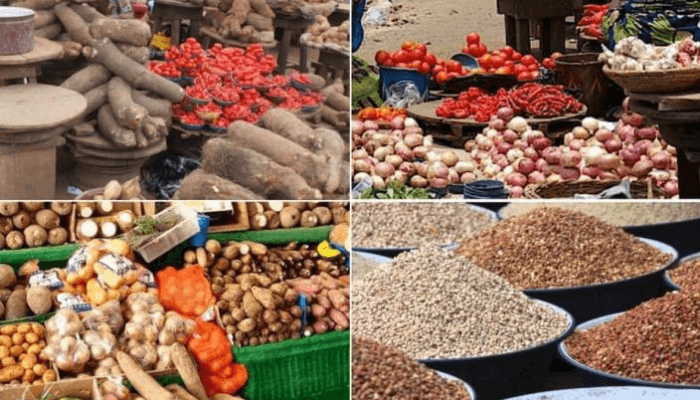Following the approval of President Bola Tinubu for the implementation of zero percent import duty and exemption of value-added tax (VAT) on basic food items, the Nigeria Customs Service (NCS) has issued new guidelines for the implementation of the presidential directive.
The approval was confirmed in a letter forwarded by the Ministry of Finance to the Nigeria Customs Service (NCS).
The Customs Service has listed and identified six food products that will benefit from the Zero Percent Duty Rate (0%) and an exemption from Value Added Tax (VAT) on certain essential food products.
The NCS provided guidelines detailing the eligibility requirements for businesses that want to take part in the zero-duty importation initiative, which is designed to bolster local food security and make essential goods more accessible and affordable.
The guidelines outline the specific food items included in this policy, as well as the compliance requirements that importers are expected to follow.
The fundamental food products that qualify for the zero percent duty rate include husked brown rice, grain sorghum, millet, maize, wheat, and beans.
S/N Item Description ECOWAS CET H.S. Code Previous Duty Rate + Levy New Duty Rate
I. Husked Brown Rice 1006.20.00.00 30% 0%
II. Grain Sorghum – Other 1007.90.00.00 5% 0%
III. Millet – Other 1008.29.00.00 5% 0%
IV. Maize – Other 1005.90.00.00 5% 0%
V. Wheat – Other 1001.19.00.00 20% 0%
VI. Beans 0713.31.90.00 20% 0%
The statement said the measure is aimed at mitigating the high cost of food items in the Nigerian market by making essential commodities more affordable for citizens.
“Drawing from the Presidential directives aimed at alleviating the hardship faced by Nigerians due to high prices of essential food items, the Nigeria Customs Service (NCS) is pleased to announce that His Excellency, the President of the Federal Republic of Nigeria Bola Ahmed Tinubu GCFR through the Honourable Minister of Finance and the Coordinating Minister of the Economy, Olawale Edun has approved the regulation for the implementation of a Zero Percent Duty Rate (0%) and Value Added Tax (VAT) exemption on selected basic food items.
“This measure aims to mitigate the high cost of food items in the Nigerian market by making essential commodities more affordable for citizens.
“The initiative is part of the government’s broader efforts to address food security challenges and ensure that basic foodstuffs are accessible to all Nigerians.
“However, it is important to emphasize that while this temporary measure is intended to address current hardships, it does not undermine the long-term strategies put in place to safeguard local Farmers and protect Manufacturers.
“It is pertinent to note that the implementation of this policy will focus on addressing the national supply gap. To participate in the zero-duty importation of basic food items, a company must be incorporated in Nigeria and have been operational for at least five years. It must have filed annual returns and financial statements and paid taxes and statutory payroll obligations for the past five years.
“Companies importing husked brown rice, grain sorghum, or millet need to own a milling plant with a capacity of at least 100 tons per day, operate for at least four years and have enough farmland for cultivation. Those importing maize, wheat, or beans must be agricultural companies with sufficient farmland or feed mills/agro-processing companies with an out-grower network for cultivation.
“The Federal Ministry of Finance will periodically provide the NCS with a list of importers and their approved quotas to facilitate the importation of these basic food items within the framework of this policy.
“The policy requires that at least 75% of imported items be sold through recognized commodities exchanges, with all transactions and storage recorded.
“Companies must keep comprehensive records of all related activities, which the government can request for compliance verification. If a company fails to meet its obligations under the import authorization, it will lose all waivers and must pay the applicable VAT, levies, and import duties.
“This penalty also applies if the company exports the imported items in their original or processed form outside Nigeria,” the statement reads.
The policy will be in effect from July 15, 2024, until December 31, 2024.










